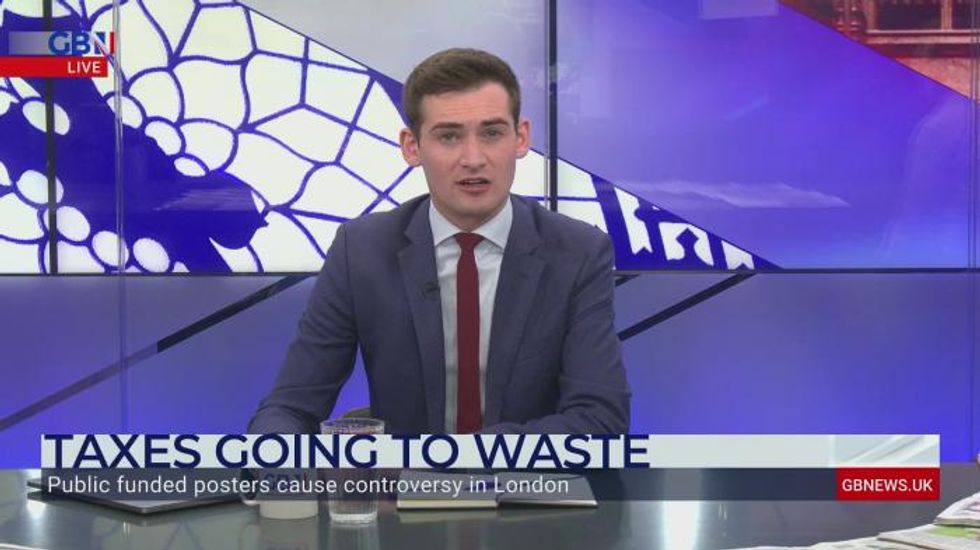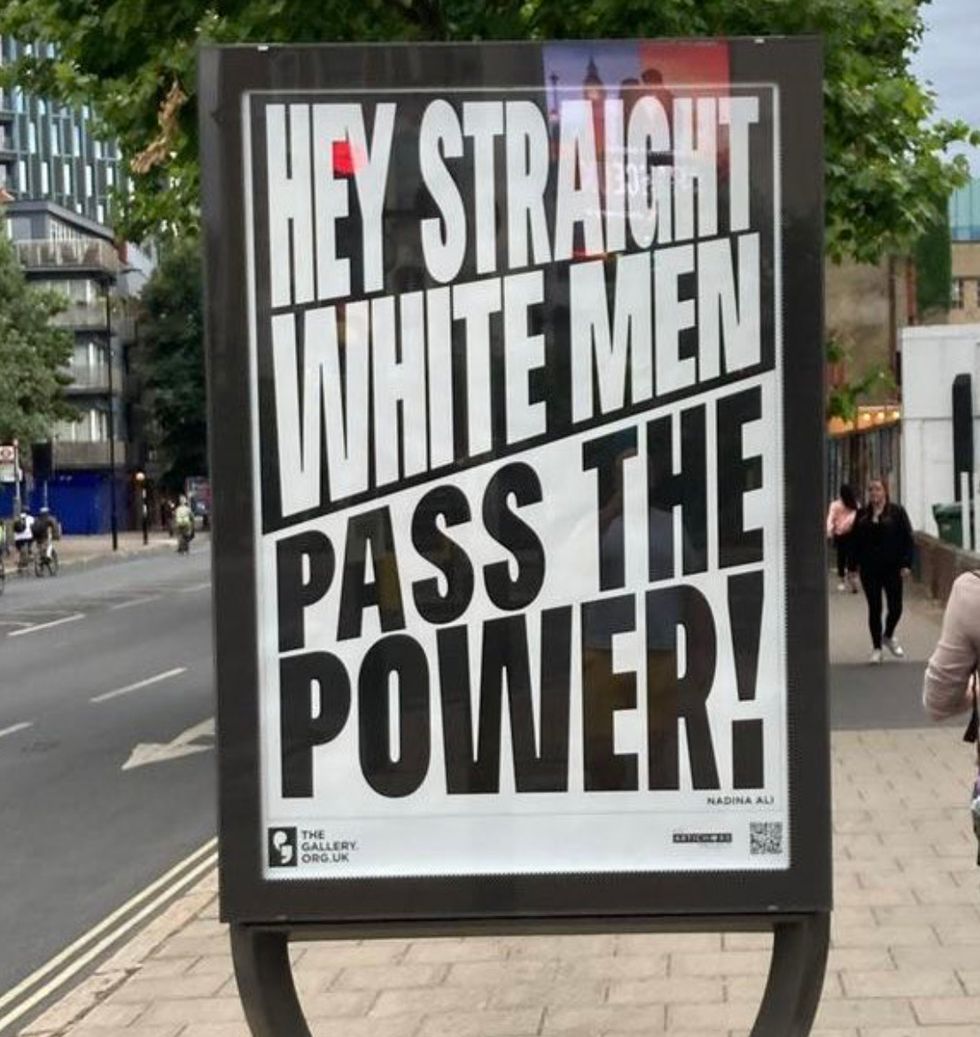Don't Miss
Most Read
Trending on GB News
An art company which created posters telling straight white men to pass the power was given £3million in government funding.
The controversial posters went viral when author Douglas Murray posted a picture of one taken in Southwark, London, on Twitter.
Comments on the posters ranged from bemusement to fury at such a negative sentiment being plastered in a busy area of the capital.
One Twitter user commented: "London over years has become so detached from most of the country's sentiments, it is mental to have something like this be considered an acceptable messaging."
The posters are believed to have been installed in several locations around London
DouglasMurray/Twitter
Another added: "I'm a straight white bloke and I live on the largest council estate in Sheffield.
"I would gladly pass on any power if I had any.
While on joked: "I'm not even the power broker in my own gaff."
Research from the Taxpayers' Alliance found the Artichoke Trust, who created the posters believed to have been installed in many locations around London, have been given £3million from a government art grant.
The Alliance's investigations campaigns manager Elliott Keck told Tom Harwood the Arts Council should be defunded so Brits can choose the art they want to pay for.
He told GB News: "Our policy response is very simple, the Arts Council should be defunded.
"So it costs we think about £4-500 million a year and that's money that could be put back into taxpayer's pockets.
"Taxpayers will use that money that they see in their pay packets to consume culture, go to museums, go to art galleries, go to shows, whatever it is."
He also said: "It speaks to a problem in the culture of government according to which only the state can provide art, culture, museums, sport, whatever it is.
"If the state stepped back and said actually let's leave the British public to decide what should be art and culture, they're just not going to do it.
"The British people understand what art and culture is and they'll pay for it if they have the money."











